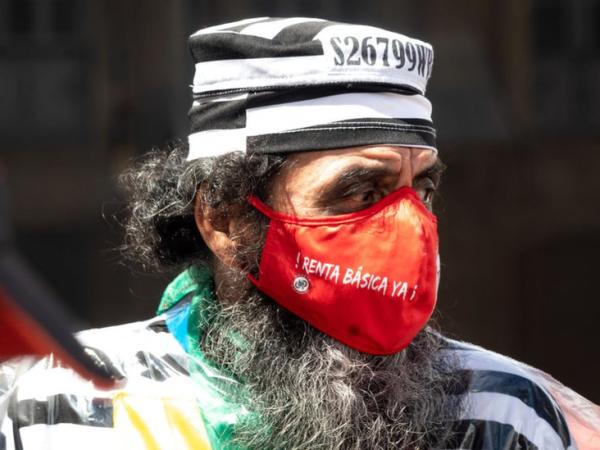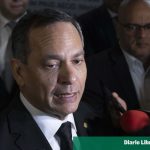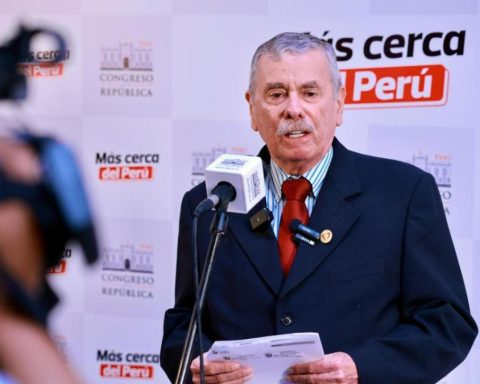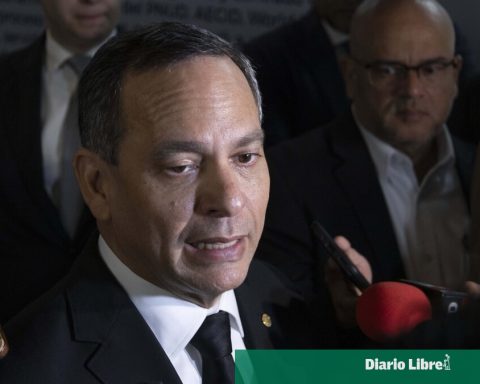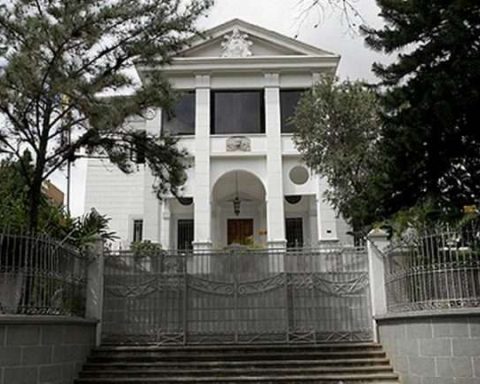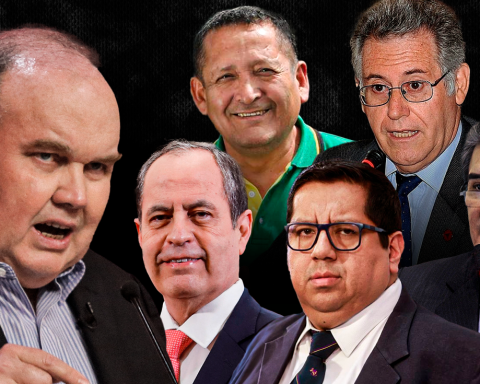As a scholar in the Department of Development Studies at SOAS University of London and founder of the Basic Income Earth Network (BIEN), a non-profit organization that promotes basic income as a universal right, Guy Standing has developed a critical view of the global economic system.
Dedicated to defending ideas such as the reduction of inequality and the right of people to have better living conditions, Standing warns about the dangers of populism and political extremism from the right or left.
Former director of the Socioeconomic Security Program of the International Labor Organization, the researcher advocates the creation of a “progressive policy” with a focus on income redistribution and social security for the most vulnerable sectors.
In an interview with BBC Mundo, Standing explains why he believes that the flaws of capitalism should be improved, instead of promoting a radical change in the system.
“We need to ensure that all people have a basic level of security and freedom to develop. This is compatible with a free market economy,” says Standing, who also exposes his perspective on some Latin American phenomena.
In your book “The precariat: the new dangerous class” you analyze the situation of a large sector of the population that lives with precarious and highly unstable jobs. Would you say that we live in an inhumane economic system?
The biggest problem we currently have is that the global economic system has been distorted, often by politicians who do not really appreciate the nature of the current capitalist economy.
The capitalist economy we have today is not a free market economy. Much of the rhetoric refers to the free market, but what has happened in the last 30 years is that the big financial groups and rentiers have created a system that is far removed from what a market economy is.
In this system, income flows increasingly to the owners of the property, be it financial, physical or intellectual property.
At the same time, they have built a system that generates high levels of inflation, mainly because finance behaves in a speculative way.
Why do you say that it is not a problem generated by a free market economy?
The free market has its own problems, but it is a mistake to say that the current economic system is a free market system, when we have millions of peasants who guarantee monopoly profits to large business groups.
This allows them to raise prices without any real competition.
This type of situation makes it possible for large corporations to buy other corporations and create monopolies in the market. We live in a very inhumane economic system.
How do these monopolies that you describe affect the common citizen?
We ordinary people are losing because we pay prices much higher than production costs and, at the same time, large companies do not pay the full cost of the problems they generate. They do not pay, for example, the ecological costs generated by their activities.
The financial system seeks high short-term profits at the expense of depleting, for example, the resources of the sea and affecting communities in different parts of the world.
But inequalities have always existed throughout history in different economic systems, it is not a phenomenon typical of capitalism nor is it a recent phenomenon…
In the last 30 or 40 years the owners of property and finance have become more powerful.
If we look at the United States, for example, financial assets have a value equivalent to 500% of national income. In my own country, Great Britain, it is more than 1,000%. This is unlike anything we have seen in the past.
The same goes for patents and intellectual rights. Nor did they exist to the same extent that they exist today. And the same with the concentration of corporate entities that generate oligopolies.
However, many economists argue exactly the opposite, arguing that thanks to the prevailing economic system in the world, many more people have been lifted out of poverty and the middle classes have grown. This has meant that a greater number of people have access to better living conditions and have access to goods and services that neither their parents nor their grandparents had…
That argument is not wrong. But we have also seen that in countries like the United States, life expectancy has decreased, both for white groups and for others. This is something unprecedented.
Suicide rates have increased, morbidity has increased, cancer rates, stress, mental illness have become epidemics.
We are in an era where we see financial crises after financial crises. We have a situation where materially it may seem that we are richer than we have ever been in history, but the levels of inequality have made life very insecure.
What effects does insecurity cause?
Insecurity generates social problems, generates populism and geopolitical tensions.
After the Second World War, a period began when life improved in developed countries, but over time, the living standards of people who live from their work have stagnated and employment has become more precarious.
You mentioned that we have seen many financial crises. However, economists argue that this is part of the cycles that the economic system goes through, which are somehow inherent in the way our global economy works.
What we have seen in recent decades – especially in relation to what we know as the economic neoliberal revolution under the governments of Margaret Thatcher or Ronald Reagan in the 1980s – is that the number of financial crises has increased enormously, as has their severity. .
We have gigantic levels of debt from households, corporations and governments, which makes our system economically unstable, with large flows of money concentrated in a minority.
Not just the Jeff Bezos or the Elon Musks, I’m talking about the 20% of wealth owners. In fact, wealth inequality has grown dramatically.
What happens is that the economic system has gone from rewarding work to rewarding the ownership of wealth. And politicians are doing nothing to address the structural challenges.
What alternative do you propose?
We need to exert political pressure to create a way of life that appreciates nature and gives people a sense of security.
A progressive politics that is not the old style of right or left is necessary. A progressive politics that unites people, instead of creating divisions.
I think this progressive politics is showing up among educated youth who are part of the precariat. I think that a new kind of renaissance will come, a new kind of freedom, fraternity and solidarity, and that we are on the threshold of transformation.
But what specifically does he propose?
For three decades I have been proposing that each person have a basic income, the right to receive each month a modest sum of money that gives them some basic security.
We have done experiments in different parts of the world and the results have been beautiful.
They show that people’s mental health improves, that people work more, not less, that the status of women improves, and we have seen that the level of tolerance and solidarity increases.
And this is affordable, affordable. We can create capital funds by taxing fossil fuels, by charging a wealth tax.
So you are in favor of improving capitalism, not changing it for another system?
I think it is not very sensible to think of a revolution or a radical change. The sensible thing is to say that a proper market economy is needed, with proper incentives for people who work hard, who invest, who take risks. We need that.
But at the same time, we need to make sure that everyone has a basic level of security and the freedom to develop. This is compatible with a free market economy.
The problem is that the type of capitalism that we have now is an abomination, because it gives all the power to a minority.
Those ideas of reducing inequality, putting an end to oligopolies, ending minority privileges, are quite similar to the discourse that the old left has proposed for years. In the case of Latin America, I can mention the case of three countries -Venezuela, Nicaragua and Cuba-, where those ideas gave way to governments that have remained in power for decades, which have been denounced for human rights violations and where the majority of the population lives in poverty
One can think of many examples around the world where politicians have taken over and things like that have happened. But I also think the agenda has changed.
I am very hopeful with the idea that Lula wins the elections in Brazil and becomes president. When I met him he told me that if he came to government, he would create a basic income in the country.
However, in Venezuela, Nicaragua or Cuba, the situation is very different…
Any country – be it Cuba, Venezuela, or the United States – that does not respect human rights is doing something deplorable. Human rights are fundamental and freedom is fundamental, as are democratic values.
What we need to do is make people financially secure so they will be less likely to support any kind of extremist politics, be it from the right or the left.
When people feel insecure, they tend to listen to populists, like, say, Donald Trump or Bolsonaro, or any of the rulers you mentioned.
A good society requires that all people have a sense of security and freedom, and any government that does not respect these values is not following the path that we need.
Remember that you can receive notifications from BBC Mundo. Download the new version of our app and activate it so you don’t miss out on our best content.
